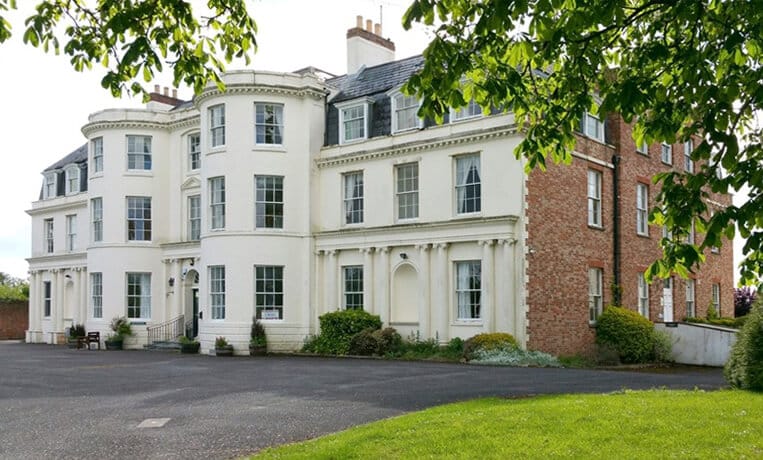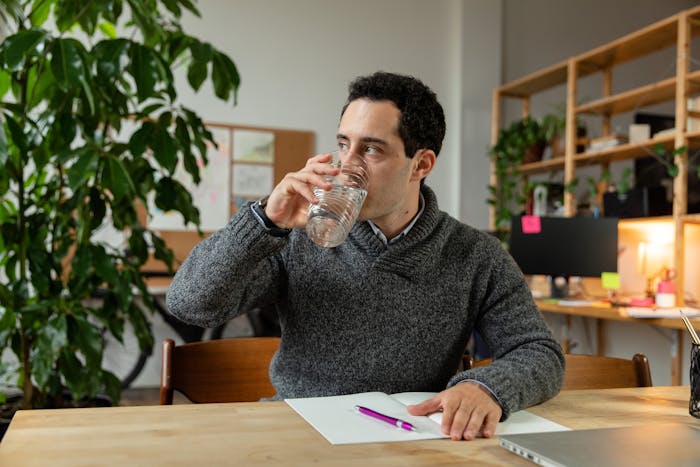Looking for a place to get assessed and treated for your drug addiction or alcohol dependency? Rehab 4 Addiction is here for you.
We offer residential and outpatient options for drug rehab in Epsom. Reach out to us and we will assess your current needs, and help create a detailed specialised treatment plan for you. This generally includes outpatient, in-home detox, residential treatments, or some combination of the two.
It’s important to understand what drug and alcohol addiction is. Not only does it enable you to understand when you might need help, but it also means you can identify the signs in those around you and know when you might need to support a loved one.
Addiction defines the condition whereby individuals consume drugs or alcohol on a frequent or excessive basis. Their brain’s reward system becomes hooked on the pleasing affect consumption provides, and the body becomes dependent on a substance to function.
These neurological and biological changes cause individuals to exhibit compulsive behaviour, lacking control or restraint when it comes to consistently seeking out and consuming a substance [1], regardless of the negative effects on health.
To begin your recovery journey today, call our 24-Hour Helpline: 0800 140 4690

Rehab is a famous word, perhaps even infamous. Almost everyone has heard of it, but it can be the source of a lot of anxiety and worry. In reality, recovery programmes are simple processes, comprising of two main stages of treatment
Lots of addictions impact the body. Alcohol and heroin are particularly influential in hormonal and chemical systems, and abuse of these substances can cause the body to become dependent on their consumption for such processes to function normally.
Detox is rehab’s medium of dealing with this physical dependency. When rehab starts, individuals taper off their substance use so that their body can gradually adjust to sobriety and relieve itself from its reliance.
Detox is known for being dangerous. Withdrawal symptoms can be quite aggressive – especially when it comes to alcohol misuse – so medical supervision is paired with Benzodiazepines to protect physical health at all times.
Not all addictions lead to physical dependency, but all prompt psychological dependency. To tackle this, rehab uses therapy.
When a substance is consumed, individuals feel relaxed, confident, or happy. They are incentivised to take it again, and the habit forms that they use drugs or alcohol whenever they want pleasure, and their brain begins to think it cannot be attained otherwise.
This believe prompts abuse, and so therapy’s role is to identify which triggers motivate individuals to feel such an intense desire for pleasure and how such a craving can be handled.
To begin your recovery journey today, call our 24-Hour Helpline: 0800 140 4690

It’s very common for mental health issues to crop up during the rehab recovery process. The recognition of a mental health condition’s role within a substance abuse problem is called dual diagnosis, and this can come in two forms.
In one way, mental health issues can act as the cause of a drug or alcohol addiction. Anxiety, depression, or trauma can prompt negative symptoms that individuals seek relief from, and so the abuse of drugs or alcohol becomes a way to self-medicate.
Alternatively, these same conditions can arise as a result of an addiction. Substances such as alcohol are depressants, meaning they impact thoughts and feelings in a negative way over time.
Dual diagnosis is so important because it allows rehab to accurately target the true cause of an addiction, or treat the symptoms of a condition that might hinder the recovery process.

Residential programmes offer some of the best drug and alcohol rehab in Epsom. These see individuals entering a facility, taking up accommodation, and progressing through treatment entirely within its grounds. But why is this approach so advantageous?
When an individual enters a facility, they sacrifice personal freedoms for the supervision of medical staff and the 24-hour provisions of safety equipment and medications.
These things are important because rehab is not easy. Detox comes with withdrawal symptoms that can affect physical and mental health, and therapy can be distressing at times.
Residential rehab, therefore, ensures that neither of these stages cause serious harm.
Successful recovery relies on the quality of treatment provided, and several factors contribute to this notion of quality.
Frequency is an important one. The more treatment sessions an individual can attend, the more support they can receive and the deeper they can delve into psychological dependency.
Residential rehab, by having patients living within a facility, offers plenty of opportunities for individuals to access treatment.
With so much time around experts and doctors, they have the chance to work thoroughly through their addiction and ensure long-term recovery.
While outpatient services have their benefits, they leave individuals exposed to the triggers of everyday life. Individuals can return home between sessions, interact with that which pushes them into unhealthy behaviour, and have their progress constantly stalled.
Living within a facility, however, protects individuals from this. Residential rehab keeps them apart from triggers and temptations and gives them an unrivalled sense of peace and serenity, separate from the stresses of life.
With this, individuals can forget the demands of their normal routine and dedicate their efforts solely to the goal of beating addiction.
To begin your recovery journey today, call our 24-Hour Helpline: 0800 140 4690

The cost of drug and alcohol rehab in Epsom varies, both in terms of programme and accommodation.
For those looking for a single room while they stay in a facility, 10-day detoxes cost between £3,000 and £6,000, and 28-day rehabs cost between £8,000 and £12,000. For a multi-occupancy room, the prices are £2,000-£4,000 and £6,000 respectively.
For home detox programmes, the price is £1,500.

In order to get time off work, temporarily leave your family, or handle your finances before rehab, it is imperative to know how long you can expect to be in treatment.
In most cases, the answer is 28 days. This total comes from detoxes usually taking between 7 and 10 days, and therapy usually requiring around 3 weeks to be effective.
Factors which might lessen or extend this duration include the severity of addiction, the abused substance, and whether another mental health condition is present.

The reason why individuals cannot be forced to undergo rehab is that they have to be ready to beat their addiction. Interventions that use shame tactics fail for this reason [2], and it is easy to overlook the power of readiness.
Rehab is not an easy process to go through. It pushes individuals to the edges of their physical and psychological endurance, and being forced into treatment will only mean they quit at the first hurdle.
Being ready, therefore, is essential. Individuals must go into treatment both willing and prepared with a set of goals and motivations to keep on track when things get tough.
Research shows that those who persevere with rehab both succeed in reducing their substance use and improving their functionality in society [3]. Being ready, therefore, makes all the difference.
To begin your recovery journey today, call our 24-Hour Helpline: 0800 140 4690

Getting into rehab is not overly complicated, but uncertainty as to how it works can put a lot of people off. Understanding the admissions process, therefore, can be very helpful.
The first step is to reach out to the rehab facility you are interested in. Of course, there are many options for drug and alcohol rehab in Epsom, so finding this treatment centre will require some research into what programmes are affordable and suitable for you.
Getting in touch can be done over the phone, or many centres have an online form on their website where you can input your information. Alternatively, you can request a referral from your GP.
During your discussions with a rehab centre, the question will arise as to what day you want to start your treatment and when they can get you in. Selecting this date is symbolically important – as it indicates your readiness for rehab – but it is also practical.
Choose a date that makes the admission process as easy as possible. Perhaps select a date that allows a friend or partner to accompany you to the centre, or maybe a date which minimises the wider impact of your absence on work or family life.
The final step is also the hardest: getting rehab started! It’s important to remember when the day comes that rehab is there to help you. While it might be stressful, the overarching goal is to make your life better, both for your own wellbeing and for those around you.
Before going into rehab, consider how you might optimise the experience for yourself. Take a diary to log your progress, or perhaps a sentimental item that you can turn to for calm or optimism.

Drug and alcohol rehab in Epsom takes time, money, and a lot of effort, but do you really need it? Is it possible to instead attend outpatient therapy and detox by yourself, achieving sobriety via self-help rather than organised support?
Unfortunately, the answer is no. While outpatient services can provide therapeutic support, detoxing by yourself is not recommended. Not only are you likely to fail without the support and guidance of experts, but you could seriously hurt yourself.
Especially when it comes to alcohol detox, the potential withdrawal symptoms an individual can experience are immensely dangerous. Alcohol withdrawal symptoms include heart problems and Delirium Tremens, a potentially fatal condition.
The closest option available to self-help is home detox. This sees individuals following a programme where they wean themselves from a substance with the aid of Benzodiazepines delivered to their homes.
They attend meetings with an expert to ensure they are proceeding at a safe pace, and only with this support and medication is detox made possible.
To begin your recovery journey today, call our 24-Hour Helpline: 0800 140 4690

Being cut off from any negative influences is the main benefit of getting treatment in one of our top-rated residential treatment locations instead of weathering out detox at home.
Detoxing is stressful enough without being in contact with anyone who does not have a healthy recovery in mind. There is an added positive of having your treatment directly overseen by some of the top medical professionals in the Epsom area.
Over half of the people taking part in recovery treatments will choose to go into residential locations where the recovery is faster. This is due to the 24/7 dedicated staff and active daily focus on becoming a better you. Our alcohol rehab centres in Epsom treats several addictions, including drugs.

When looking for the perfect drug rehab in Epsom, keep in mind that no recovery is the same.
You will want to make sure they cover the right kinds of dependency detox to cater to your needs as well as ensure that whichever facility you choose has the type of therapy you feel comfortable with attending.
Most will have a variety of therapy options, but it is good to know what they are before making a decision. Making sure you understand the options available will help to create the environment possible for you. Some locations have peer group options, and others do not.
Other things to keep in mind are what kind of licencing and credentials their staff possesses and what kind of aftercare programmes they offer.

An initial assessment interview will determine where you are in your recovery, and the path forward for you individually. Our specialists will ask for information regarding your health and addiction, and a plan will be created based on this information to match your needs.
When attending the assessment interview, it is imperative to be completely honest with the doctor. If not, you may not get the right treatment plan set up.
Honesty at the start will help to ensure that your recovery goes as smoothly as possible. The more information they have at the start, the easier it will be to anticipate any alterations to the treatment plan later on during recovery.
To begin your recovery journey today, call our 24-Hour Helpline: 0800 140 4690

If you have made the decision to get help but are not sure what to expect, here is a breakdown of what will take place in a rehab facility during medically assisted detoxification. There are several different possible treatment plans.
You may also have an alternate inpatient and outpatient plan. This is where you spend the majority of the week living in the rehab facility and then the rest of the week at home. This part will depend on the recommendations provided by the centre staff and what you choose.
Inpatient treatment will mean staying at a hospital or rehab centre for the entirety of your detox. This is the fastest option, with the most likely long-term positive outcome. You will have access to anything you need to aid in your recovery 24/7 and will be assisted by supportive, trained professionals.
Generally, residential treatment takes around one to three months. It can go longer or shorter depending on your specific reactions to treatment.

Being through detox will not make you stop relapsing. It is the mental health treatment that will do the most good in the long run. The skills you learn from your therapist will allow you to look at the cause of the addictions and find new, healthy coping mechanisms.
Most residential treatments involve talking, such as:
These sessions are beneficial because they help to disrupt negative thinking patterns and coping skills. Talking through issues and finding healthy, safe alternatives is a pathway to keeping you sober.
To begin your recovery journey today, call our 24-Hour Helpline: 0800 140 4690

In the first 24-72 hours, you will be continuously monitored by caring, kind professionals who will be there to ease the hardest wave of detox. After that, there will be therapists, doctors, and care technicians on hand to give you the care you require.
During the 1-3 months that it generally takes to get through the detox period, you will gain significant therapeutic strategies to assist for day to day life outside your drug rehab Epsom centre. You will also be taught aftercare procedures to foster long-term success.

This is an essential time during your recovery. Aftercare is a set of taught self-talking and coping strategies built up over your residential stay to assist you with resisting triggers that may appear in your day-to-day life.
Most rehab facilities include aftercare systems of support that last from six to twelve months. Help will be available whenever you need it in the form of daily or weekly therapy sessions. Our doctors will also check-in, and you can attend peer groups like the 12-step programmes.

Navigating the world of drug and alcohol rehab in Epsom can be confusing, both in terms of finding the right kind of treatment plan (or outpatient programme) and accessing it.
If you are unsure about suitable rehab, acquiring funding, or are just anxious about the whole process, Rehab 4 Addiction is here to help. Our team are available to answer your questions, point you in the right direction, or just give you someone to talk to.
To begin your recovery journey today, call our 24-Hour Helpline: 0800 140 4690
If you or a loved one is suffering from addiction, let us help. You can call us for more information on drug and alcohol rehab centres in Epsom, or set up an assessment interview today. Reach out by giving us a call today.
Rehab 4 Addiction officers a range of addiction treatments in Surrey, including Guildford, Woking, Farnham and Epsom.
Want to learn more about your path to a happier and sober future? Call us now on 0800 140 4690 for confidential and immediate advice.
[1] https://nida.nih.gov/publications/drugs-brains-behavior-science-addiction/drug-misuse-addiction
 Addiction is often largely misunderstood, with many incorrectly labelling it as a lack of willpower, a moral failing or something that happens after a series of bad choices. When, actually, addiction is much more complex. It can be shaped by a number of things, such as trauma, mental health, the environment you grew up in […] .... Read More
Addiction is often largely misunderstood, with many incorrectly labelling it as a lack of willpower, a moral failing or something that happens after a series of bad choices. When, actually, addiction is much more complex. It can be shaped by a number of things, such as trauma, mental health, the environment you grew up in […] .... Read More
 After completing or trying your best for Dry January, it can be tempting to count the days left until you can give it all up and return to drinking. But there are multiple benefits to maintaining your abstinence into February and longer. During Dry January, your liver begins to repair itself, say if you were […] .... Read More
After completing or trying your best for Dry January, it can be tempting to count the days left until you can give it all up and return to drinking. But there are multiple benefits to maintaining your abstinence into February and longer. During Dry January, your liver begins to repair itself, say if you were […] .... Read More